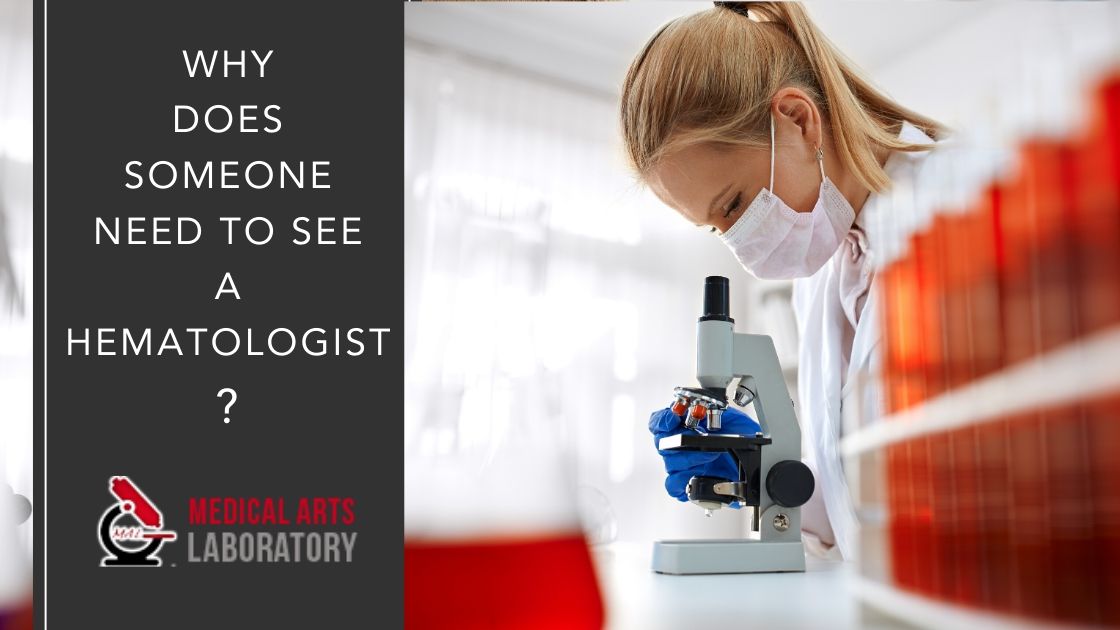
03 Jan Why Does Someone Need to See a Hematologist?
If you remember learning your Latin and Greek root words in high school, then you may recall that the prefix hemo/hema refers to blood. Therefore, in its simplest definition, hematology is the science or the study of blood. A hematologist, then, is someone who specializes in hematology, particularly focusing on blood-related diseases and malignancies. Your primary physician may refer you to a hematologist if he or she suspects you have any blood-related conditions that require treatment. A hematologist will be able to assist with accurately diagnosing blood disorders through testing and with prescribing an effective treatment plan.
Treating Cancerous and Non-Cancerous Blood Disorders
Hematologists are doctors with additional training and specialization, and are generally just one member of a larger team dedicated to the treatment of a patient. Other members of this care team include surgeons, radiation oncologists and other medical specialists. Hematologists also work frequently with lab technicians for testing and analyzing blood samples, along with hematopathologists for diagnostic assistance.
A hematologist will administer hematologic tests, or specific blood tests, to determine an accurate diagnosis. Hematologists assist in diagnosing, treating and preventing both cancerous and non-cancerous blood disorders. Some examples of blood-related diseases and disorders treated by a hematologist include:
- Sickle cell anemia
- Hematologic malignancies/cancers, including leukemia and lymphoma
- Hemophilia and idiopathic thrombocytopenic purpura
- Arterial thromboembolism
- Neutropenia
- Deep-vein thrombosis
- Hemoglobinopathies
What to Expect If You’re Sent to a Hematologist
Your primary care physician or another doctor will likely be who refers you to see a hematologist, based on the signs and symptoms you may exhibit indicating the presence of a blood-related health condition. Because there are a wide range of blood disorders, not everyone who sees a hematologist will be experiencing the same symptoms.
Your first visit with a hematologist will be very informative, as your hematologist will conduct a complete assessment of your condition, review treatment options with you, make recommendations and explain potential future outcomes depending on your selecting plan of treatment. When you attend your first visit with your hematologist, it will be important to bring along a supportive person in your life, a list of questions about your condition and treatment, any forms regarding your personal and family medical history, your insurance card and ID, and anything to take notes with.
Your hematologist may schedule blood draw tests on the same day as your initial consultation, depending on your condition. These tests will help your hematologist and primary care physician to make an accurate diagnosis of any blood disease, blood cancer or inflammatory disease, as well as aid in monitoring any blood loss or infection. Hematologic test types may include complete blood count (CBC), prothrombin time (PT), partial thromboplastin time (PTT) and international normalized ratio (INR).
From here on out, your treatment will involve both your hematologist and your primary care physician to help you manage any blood-related conditions.
Central Florida Hematology Testing
For reliable hematology tests in Central Florida, look no further than Medical Arts Laboratory. We offer a wide range of hematology blood tests, including complete blood count (CBC), CBC with differential, erythrocyte sedimentation rate (ESR), prothrombin time (PT), international normalized ratio (INR), ferritin, folate, Vitamin B12, iron and unbound-iron binding capacity (UIBC). Medical Arts Laboratory served Central Florida communities with fast, reliable blood testing and results for over 20 years. See our contact page to view our seven locations and to schedule your next blood test appointment with us.




No Comments